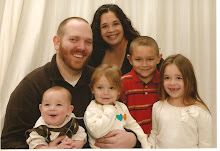The reading for Jan. 3rd was Matthew 2:1-12, Acts 2:1-21, Psalm 3, and Genesis 5-8.
The passage from Matthew covers the visit of the wise men. This is the first time in the gospel of Matthew that Jesus is referred to as king and the first time that he is worshipped as such. Verse 3 says, "When Herod the king heard this, he was troubled, and all Jerusalem with him." I can understand Herod, the wicked king, fearing the birth of Christ, but I don't understand why all of Jerusalem was troubled. Isn't this the one they were all waiting for? It seems to me that they would have been excited about his birth.
The passage from Acts covers the outpouring of the Holy Spirit on the disciples. The interesting thing to me about this passage is the prophecy of Joel that, as Peter declared to those who were gathered, is fulfilled. The prophecy of Joel is not just about the Spirit being poured out, but also about judgement and the last days. I can definitely see how verses 17, 18, and 21 were fulfilled, but how were verses 19 and 20 fulfilled? Anyone?
Psalm 3 is a beautiful psalm of God's protection. David, while running from his son Absolom, says, "But you, O Lord, are a shield about me, my glory, and the lifter of my head. I cried aloud to the Lord and He answered me from His holy hill. Selah. I lay down and slept; I woke again, for the Lord sustained me." Can anyone have greater confidence than this? The only reason we make it through the night is God's care of us. This should give us the confidence of David, who cried out to God and expected to be heard because God loves us!
Genesis 5-8 cover the events of the flood. The main thing in this passage, to me, is the promise that God gives at the end of chapter 8, "I will never again curse the ground because of man, for the intention of man's heart is evil from his youth. Neither again will I strike down every living creature as I have done. While the earth remains, seed-time and harvest, cold and heat, summer and winter, day and night, shall not cease." Even though God recognizes the evil heart of man, He chose to put up with us. Instead of destroying the earth, God promises to sustain it in spite of evil man. How much does God love the works of His hands? I could be wrong, but I believe the phrase "while the earth remains" could be understood as "forever" and it is reinforced by the final phrase of "shall not cease." So you might say that this promise to the earth is "forever and ever."
The Power of Hoping in God’s Meticulous Providence
-
[image: The Power of Hoping in God’s Meticulous Providence]
Because God’s purposeful sovereignty reaches absolutely everywhere, his
gospel can satisfy, his...
23 hours ago




No comments:
Post a Comment